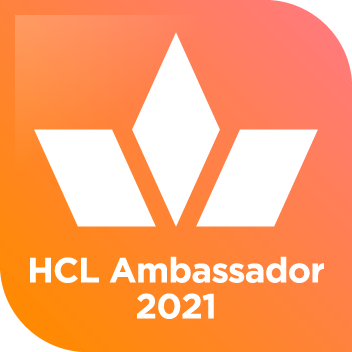August 24 2010 Tuesday
A late topic: Google Wave decision means what?
20 days ago, Google announced that Google Wave will not be continued as a standalone product. What are the implications of this surprising decision for us, social software fans?
As I blogged before, Project Vulcan has been announced by IBM several months ago. I commented Google Wave is the pioneer of 'new social interfaces' at that time. In "Corporate Social Software: Ingredients (4)" entry, I pointed a future need of a new interface for the social software environment. Because information flow will be so great that it will be inefficient to be monitored from E-mail.
From a personal point of view, I experience the exact problem in social media. I have Twitter, FriendFeed, Google Reader, Facebook and LinkedIn accounts. I am using all for different purposes. I am watching a number of different interest areas from Lotus products to football. A single interface has not been achieved yet where Google Wave was the most probable solution for myself.
So why they couldn't do it?
I think the most important issue is the privacy problem. Google has a bad reputation on this and personally I don't want Google to know about me more. Once, I wanted to test some privacy issues on Facebook. I opened a completely fake account and gave my very aged yahoo e-mail which is not active for over 8-9 years. Facebook recovered over 40 friend suggestions from this account. I don't know anything about how they did it but it clearly ringed bells about my personal privacy.
Another reason may be the position of social network applications for an average user. Community building is not possible for a large number of users. Think of a corporate social software. All collegues in your company are using the same application. However, for an average user, social network is spanned among different applications, like Facebook, LinkedIn, etc. Many, conciously don't let these subgroups to be merged in a single platform. So establishing a federated interface probably disturbs them.
Anyway, it may have worked, not for a complete integration, but to develop more wholistic communication. I don't think that the death of Google Wave indicates a big failure for Google. They did innovate the messaging approaches.
Bill Pray, from Gartner wrote an article "Google Wave – Not an E-mail Replacement". He implied some reasons like third party engagements, lack of ability for participation. He suggested 'remarketing as a business service' will be more successful model for Google Wave.
For business users, an integrated messaging and collaboration interface is not a 'nice to have' feature. It should be implemented. I guess Google is not far away a more united product against Lotus Live and they will use their 'Wave experience'.
As I blogged before, Project Vulcan has been announced by IBM several months ago. I commented Google Wave is the pioneer of 'new social interfaces' at that time. In "Corporate Social Software: Ingredients (4)" entry, I pointed a future need of a new interface for the social software environment. Because information flow will be so great that it will be inefficient to be monitored from E-mail.
From a personal point of view, I experience the exact problem in social media. I have Twitter, FriendFeed, Google Reader, Facebook and LinkedIn accounts. I am using all for different purposes. I am watching a number of different interest areas from Lotus products to football. A single interface has not been achieved yet where Google Wave was the most probable solution for myself.
So why they couldn't do it?
I think the most important issue is the privacy problem. Google has a bad reputation on this and personally I don't want Google to know about me more. Once, I wanted to test some privacy issues on Facebook. I opened a completely fake account and gave my very aged yahoo e-mail which is not active for over 8-9 years. Facebook recovered over 40 friend suggestions from this account. I don't know anything about how they did it but it clearly ringed bells about my personal privacy.
Another reason may be the position of social network applications for an average user. Community building is not possible for a large number of users. Think of a corporate social software. All collegues in your company are using the same application. However, for an average user, social network is spanned among different applications, like Facebook, LinkedIn, etc. Many, conciously don't let these subgroups to be merged in a single platform. So establishing a federated interface probably disturbs them.
Anyway, it may have worked, not for a complete integration, but to develop more wholistic communication. I don't think that the death of Google Wave indicates a big failure for Google. They did innovate the messaging approaches.
Bill Pray, from Gartner wrote an article "Google Wave – Not an E-mail Replacement". He implied some reasons like third party engagements, lack of ability for participation. He suggested 'remarketing as a business service' will be more successful model for Google Wave.
For business users, an integrated messaging and collaboration interface is not a 'nice to have' feature. It should be implemented. I guess Google is not far away a more united product against Lotus Live and they will use their 'Wave experience'.




